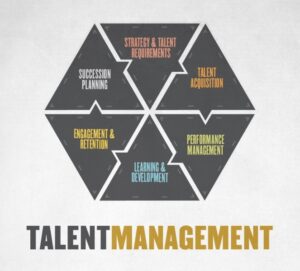 Eighty-three percent of executives report that they do not have the right talent and capabilities to build upon their strategy. This staggering number is based on a Korn Ferry global survey of approximately 7,500 senior executives across 107 countries.
Eighty-three percent of executives report that they do not have the right talent and capabilities to build upon their strategy. This staggering number is based on a Korn Ferry global survey of approximately 7,500 senior executives across 107 countries.
Dr. Keith Halperin, senior client partner for Korn Ferry Hay Group and associated faculty with the Purdue University Center for Food and Agricultural Business, says the message is clear, so what’s the problem? Leaders must become a catalyst for change.
When organizations focus on building a robust pipeline of talent for pivotal roles, leadership development tends to neglect filtering all the way down the organization. The problem is that leadership development usually targets upper level employees late in the game instead of investing in the entirety of employees from top to bottom. To bridge this gap, organizations must start to develop leaders far earlier in their careers. Connecting the dots between first-level leaders up to the C-suite is fundamental.
Executives from the survey reported they would change over half of their current leadership development practices to be more customized to their organization’s strategy and business context and felt in-person programs would benefit employees more than online professional development. In addition, executives wanted their employees to feel their leadership development was a journey as opposed to an event.
If the first-, mid- and high-potential leaders aren’t driving action in your agribusiness, step back and ask yourself what you’re doing to motivate them. Have you adopted and maintained an environment where your first-level leaders are able to gain senior leader exposure? Are they being encouraged to try new things, learn, stumble and grow? Are you equipping them with the necessary resources?
Organizations need to understand the vital importance of paying attention to high-talent leaders early in their careers. As these leaders develop, they can be better prepared to make mistakes, correct themselves, move up the ranks more quickly and become a critical asset to the organization’s success.
Leadership development should be purposeful, focusing on the needs of the individual and the organization as a whole. Re-think how you define and execute your leadership development strategy in order to drive change and take your team to the top. Remember, your first-level leaders today are the future of your business tomorrow. Be sure you are fully investing in their success.
Managing Talent to Win
Learn more from Dr. Keith Halperin at the Managing Talent to Win professional development program June 25-27, 2019 on Purdue University’s West Lafayette, IN campus. Participants will create individualized plans to improve talent management, learn to identify and prepare the right people for critical positions, develop plans for effectively leveraging strategic employee talent and build leadership and management competencies. In addition to Dr. Halperin, Center Director Dr. Michael Gunderson and Center Executive Director Dr. Allan Gray will serve as program facilitators. Register today!
Participants are encouraged to attend as a team! For questions, more information or team discount rates, contact Betty Jones-Bliss at 217-549-2883 or bettyso@purdue.edu.



